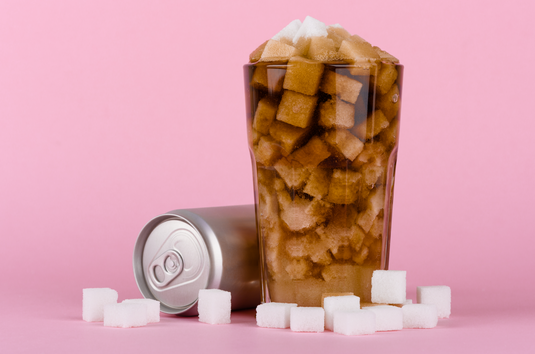The Food Guide to Combat Sun Damage

Are you a sun baby that loves to bathe in the bronzing rays? You’re not alone – it’s hard to resist basking in the warming sunshine! Remember the ad from our childhood of a toddler getting her swimsuit tugged at by an obscenely cute dog? They had something right – the necessity of sunscreen, but with the increase of harmful toxins and harmful ultraviolet (UV) radiation, we need to take extra steps to protect ourselves daily.
Although we can get the benefit of Vitamin D from the sun’s rays, continuous exposure to UV radiation can reduce skin and blood antioxidants, causing damage to cell components, including our DNA. This can lead to skin disorders like sunburns, photo-damage, premature aging, and non-melanoma skin cancer.
But did you know your body has its own natural endogenous defense system? In addition to non-toxic topical sunscreen, it is necessary to incorporate nutrients in your diet that help protect your skin internally. Certain nutrients from foods and supplements can act as internal photo-protective agents, that help to prevent you from having that ‘leathered’ look.
The top nutritional powerhouses to offer internal sun protection and glowing skin are:
Several studies show that consumption of β-carotene supports the reflective properties of the skin and may have a direct photo-protective effect because of its physical ability to absorb light. This means that you can protect your skin from sunburns by consuming food rich in vitamin A. Pretty sweet, right? Sun protective β-carotene is found in spirulina, kale, and orange fruits and vegetables -like carrots.
Lycopene is another essential antioxidant from a group called carotenoids. Lycopene helps protect the skin from sunburns by helping to clear the free radical damage caused by sun exposure, as found in this study. Lycopene is naturally rich in apricots, grapefruit, papaya, and tomato paste.
The combination of Vitamins C and E is a powerful way to protect the skin from sun damage. Studies. Studies show that the antioxidant action of these vitamins help to protect the skin from acute sun damage that shows up as erythema. Besides its antioxidant properties, one study shows vitamin E to have an anti-inflammatory effect and thereby complement the photo-protective effects of other antioxidants in the skin. Vitamin E can be found in sunflower seeds, greens (especially spinach, Swiss chard, and beet greens) and avocado. The richest sources of vitamin C come from papaya, bell peppers, and broccoli spouts. The combination of these powerful antioxidants is found in greens+ formula which includes vitamin E, C, and lycopene PLUS phytonutrient- rich, immune boosting green superfoods.
Glutathione is an important molecule produced by the body and it's essential to keep our cells healthy and prevent disease. It is found in cells all over the body, including the skin and liver. A combination of environmental toxins, poor diet, stress, and harmful UV rays deplete the body from glutathione, leaving us more susceptible to oxidative stress, free radical damage, and premature aging.
To increase your glutathione levels, try adding more sulfur rich foods into your diet, like broccoli sprouts, increase selenium rich foods like Brazil nuts, and make sure to add in some form of exercise 3-4 times per week.
An overall increase in blood antioxidant capacity and daily consumption of greens+ has been clinically proven to increase your "master antioxidant" glutathione levels. Increasing cellular levels of glutathione protects cells against oxidative damage, toxic compounds, and physical agents, such as radiation and ultraviolet light.
One of the amazing benefits of green tea is due to the high amount of polyphenols found in its leaves. Studies show that these polyphenols help inhibit carcinogenesis caused by UV-radiation and boosting the immune system. These beneficial effects are achieved by drinking green tea daily or by supplementation.
Polyunsaturated fatty acids (PUFAs) have been shown to provide photo-protective effects, particularly eicosapentaenoic acid (EPA). One study found that supplementing with 4 grams of fish oil for 3 months helped prevent sunburn and increased the threshold to sunburn formation due to its anti-inflammatory effects. Common food sources of PUFA’s are cod liver oil, fish oil, and marine animals with a high amount of fat, such as mackerel and wild salmon. To ensure you are getting enough anti-inflammatory skin protection, you can use a supplement containing appropriate amounts of EPA like omega3+ Extra Strength.
What you eat can either accelerate premature aging and DNA destruction or help to protect you from the harmful effects of pollution and UV rays. But remember – even though supplementation with these nutrients has shown to provide protection against ultraviolet light, it is important to continue to use non-toxic topical sunscreens to prevent damage caused by harmful UV rays.
Although we can get the benefit of Vitamin D from the sun’s rays, continuous exposure to UV radiation can reduce skin and blood antioxidants, causing damage to cell components, including our DNA. This can lead to skin disorders like sunburns, photo-damage, premature aging, and non-melanoma skin cancer.
But did you know your body has its own natural endogenous defense system? In addition to non-toxic topical sunscreen, it is necessary to incorporate nutrients in your diet that help protect your skin internally. Certain nutrients from foods and supplements can act as internal photo-protective agents, that help to prevent you from having that ‘leathered’ look.
The top nutritional powerhouses to offer internal sun protection and glowing skin are:
Vitamin A (β-carotene) and Lycopene for Sunburn Protection
Several studies show that consumption of β-carotene supports the reflective properties of the skin and may have a direct photo-protective effect because of its physical ability to absorb light. This means that you can protect your skin from sunburns by consuming food rich in vitamin A. Pretty sweet, right? Sun protective β-carotene is found in spirulina, kale, and orange fruits and vegetables -like carrots.
Lycopene is another essential antioxidant from a group called carotenoids. Lycopene helps protect the skin from sunburns by helping to clear the free radical damage caused by sun exposure, as found in this study. Lycopene is naturally rich in apricots, grapefruit, papaya, and tomato paste.
Vitamin E and C to Prevent Sun Damage
The combination of Vitamins C and E is a powerful way to protect the skin from sun damage. Studies. Studies show that the antioxidant action of these vitamins help to protect the skin from acute sun damage that shows up as erythema. Besides its antioxidant properties, one study shows vitamin E to have an anti-inflammatory effect and thereby complement the photo-protective effects of other antioxidants in the skin. Vitamin E can be found in sunflower seeds, greens (especially spinach, Swiss chard, and beet greens) and avocado. The richest sources of vitamin C come from papaya, bell peppers, and broccoli spouts. The combination of these powerful antioxidants is found in greens+ formula which includes vitamin E, C, and lycopene PLUS phytonutrient- rich, immune boosting green superfoods.
Master Antioxidant Glutathione to the Rescue
Glutathione is an important molecule produced by the body and it's essential to keep our cells healthy and prevent disease. It is found in cells all over the body, including the skin and liver. A combination of environmental toxins, poor diet, stress, and harmful UV rays deplete the body from glutathione, leaving us more susceptible to oxidative stress, free radical damage, and premature aging.
To increase your glutathione levels, try adding more sulfur rich foods into your diet, like broccoli sprouts, increase selenium rich foods like Brazil nuts, and make sure to add in some form of exercise 3-4 times per week.
An overall increase in blood antioxidant capacity and daily consumption of greens+ has been clinically proven to increase your "master antioxidant" glutathione levels. Increasing cellular levels of glutathione protects cells against oxidative damage, toxic compounds, and physical agents, such as radiation and ultraviolet light.
Cancer Protection with Green Tea Extract
One of the amazing benefits of green tea is due to the high amount of polyphenols found in its leaves. Studies show that these polyphenols help inhibit carcinogenesis caused by UV-radiation and boosting the immune system. These beneficial effects are achieved by drinking green tea daily or by supplementation.
Put Out the Fire with PUFA’s
Polyunsaturated fatty acids (PUFAs) have been shown to provide photo-protective effects, particularly eicosapentaenoic acid (EPA). One study found that supplementing with 4 grams of fish oil for 3 months helped prevent sunburn and increased the threshold to sunburn formation due to its anti-inflammatory effects. Common food sources of PUFA’s are cod liver oil, fish oil, and marine animals with a high amount of fat, such as mackerel and wild salmon. To ensure you are getting enough anti-inflammatory skin protection, you can use a supplement containing appropriate amounts of EPA like omega3+ Extra Strength.
What you eat can either accelerate premature aging and DNA destruction or help to protect you from the harmful effects of pollution and UV rays. But remember – even though supplementation with these nutrients has shown to provide protection against ultraviolet light, it is important to continue to use non-toxic topical sunscreens to prevent damage caused by harmful UV rays.


















































